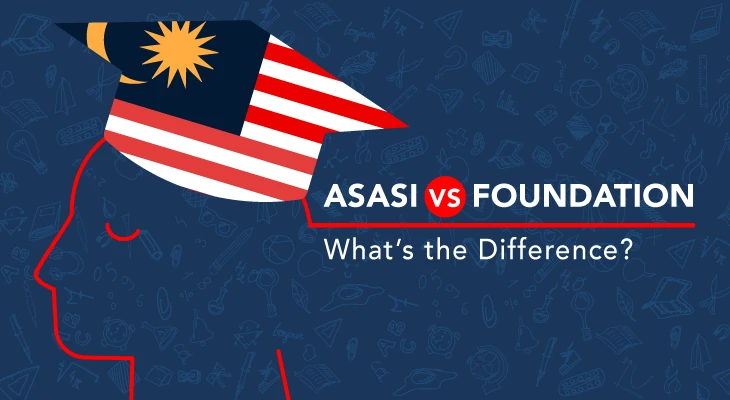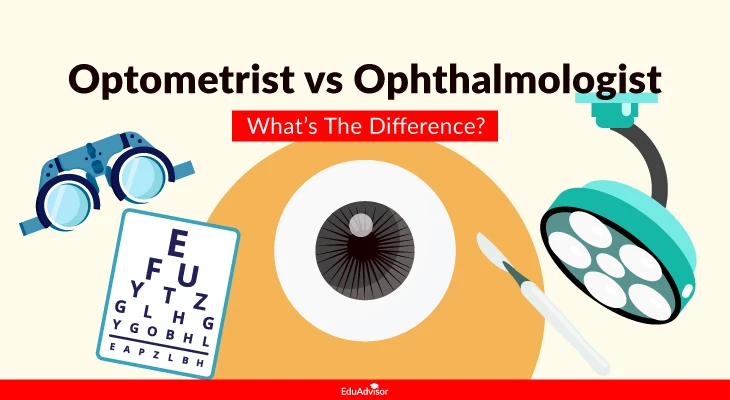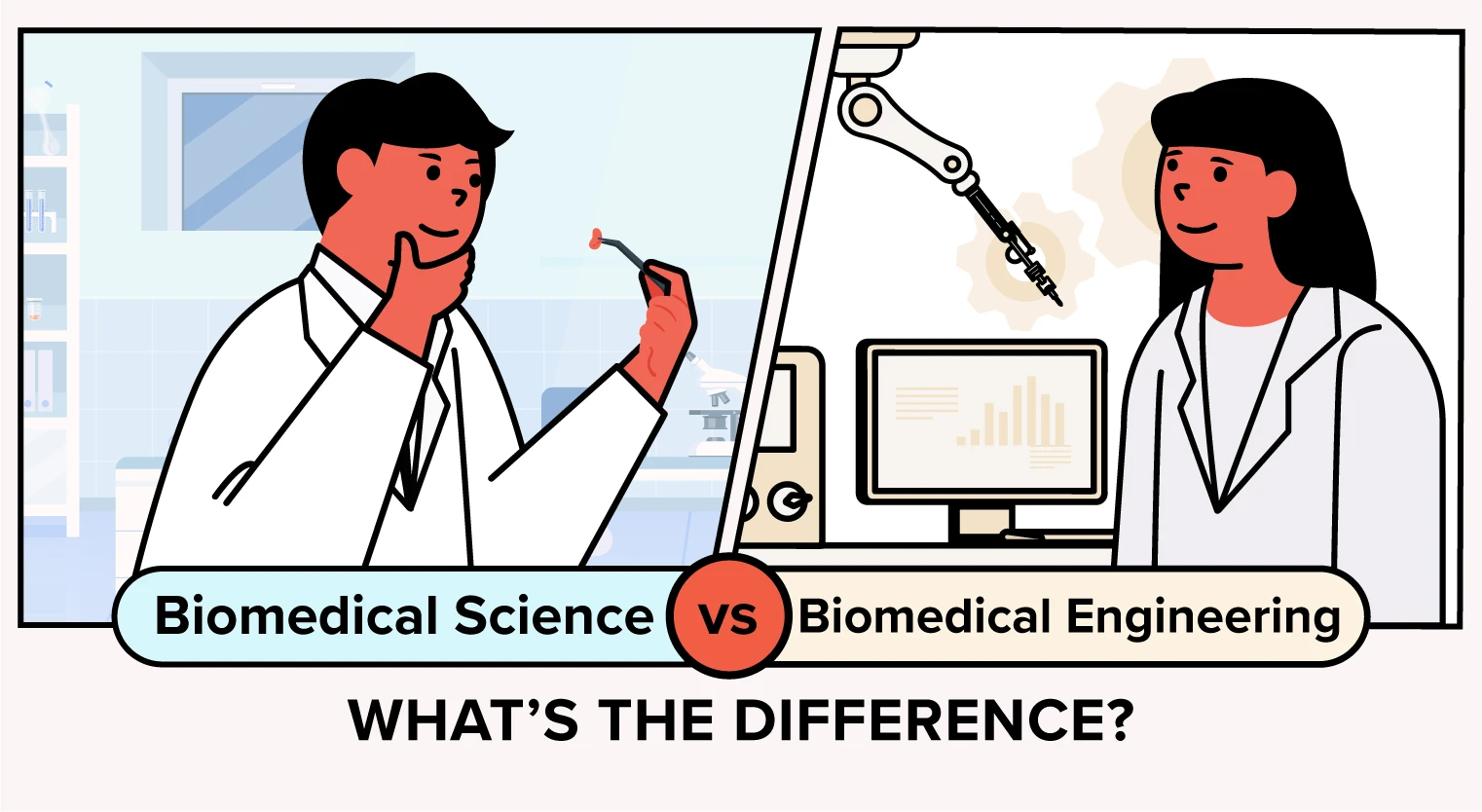Pharmacy vs Biomedical Science: What’s the Difference?
Pharmacy and biomedical science both deal with medicine but how do the two fields differ? Read on to learn more.
Updated 20 May 2022
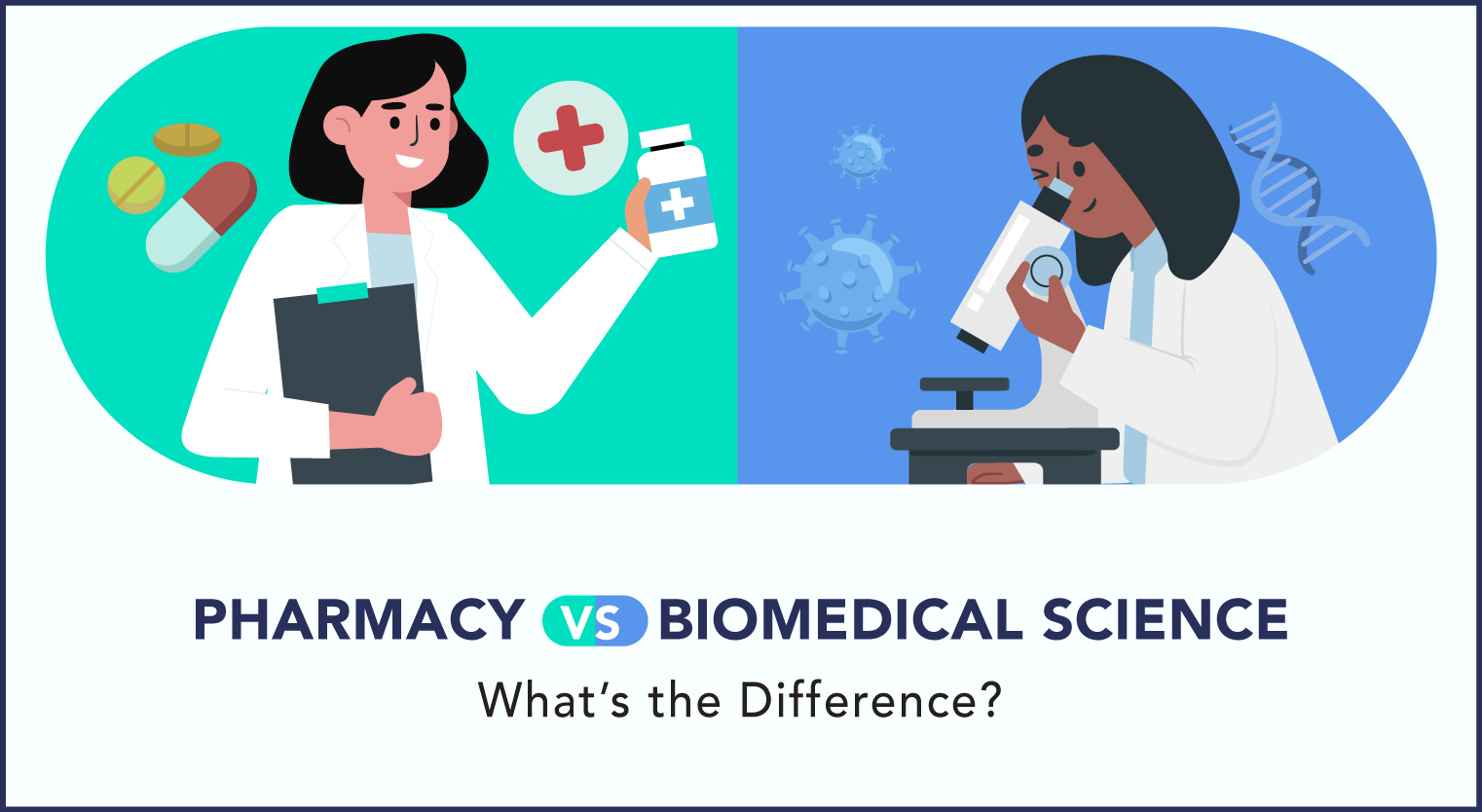
Did you know that pharmacy and biomedical science are two different fields? While both play around with human health, they cover different parts of the healthcare system.
In case you’re wondering, here are some of the top differences between pharmacy and biomedical science.
#1. Pharmacy is about the treatment while biomedical science is about the research for treatment
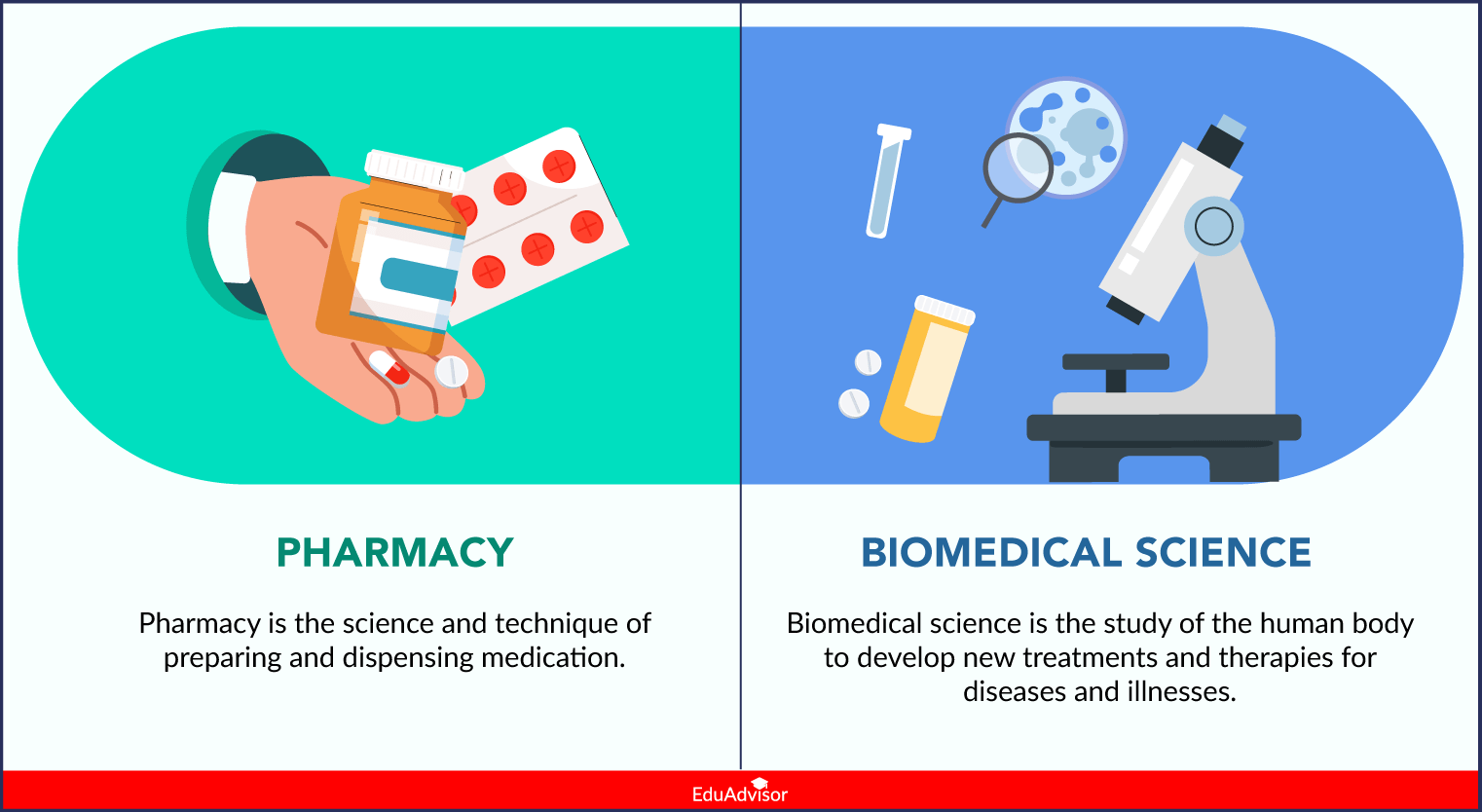
Pharmacy is the science and technique of preparing and dispensing medication. The field’s main focus is the safety of the medication prescribed and ensuring that patients are taking it in a safe way. This includes taking into account things such as drug interactions, appropriate dosages, efficacy and side effects.
Biomedical science, on the other hand, is the study of the human body to develop new treatments and therapies for diseases and illnesses. The field is focused on conducting research to help drive treatment advancements.
In short, pharmacy is about dispensing medication to treat the patients while biomedical science is about researching to help find treatment.
#2. The entry requirements for pharmacy is higher than biomedical science
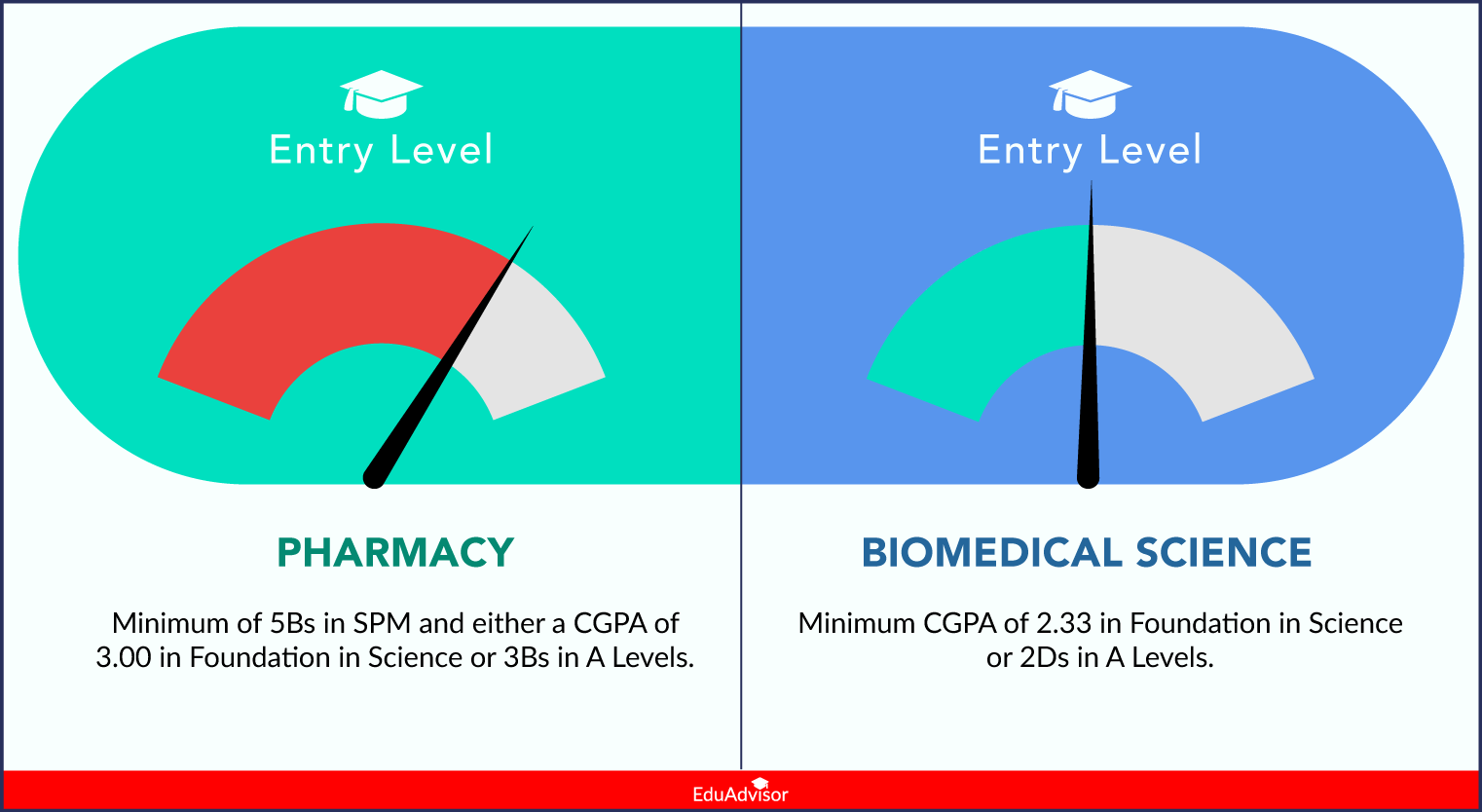
The two fields are not the same so naturally, they are also divided into different study programmes. This means they have different entry requirements.
Between the two, a pharmacy programme typically has higher entry requirements. To qualify for a pharmacy degree in Malaysia, you’ll need a minimum of 5Bs in SPM including Biology, Chemistry, Physics and Mathematics or Additional Mathematics. In addition, you must also have at least a CGPA of 3.00 in Foundation in Science or 3Bs in A Levels, one of which must be in Chemistry.
Biomedical science, a subset of bioscience, only requires you to have a minimum CGPA of 2.33 in Foundation in Science or 2Ds in A Levels in two of the following subjects: Biology, Chemistry and Physics / Mathematics.
Exact requirements may vary by institution but typically you will need better academic results to get into a pharmacy programme compared to biomedical science.
Apply for university with EduAdvisor
Secure scholarships and more when you apply to any of our 100+ partner universities.
Start now#3. Pharmacy requires compulsory service while research work in biomedical science may call for postgraduate qualification
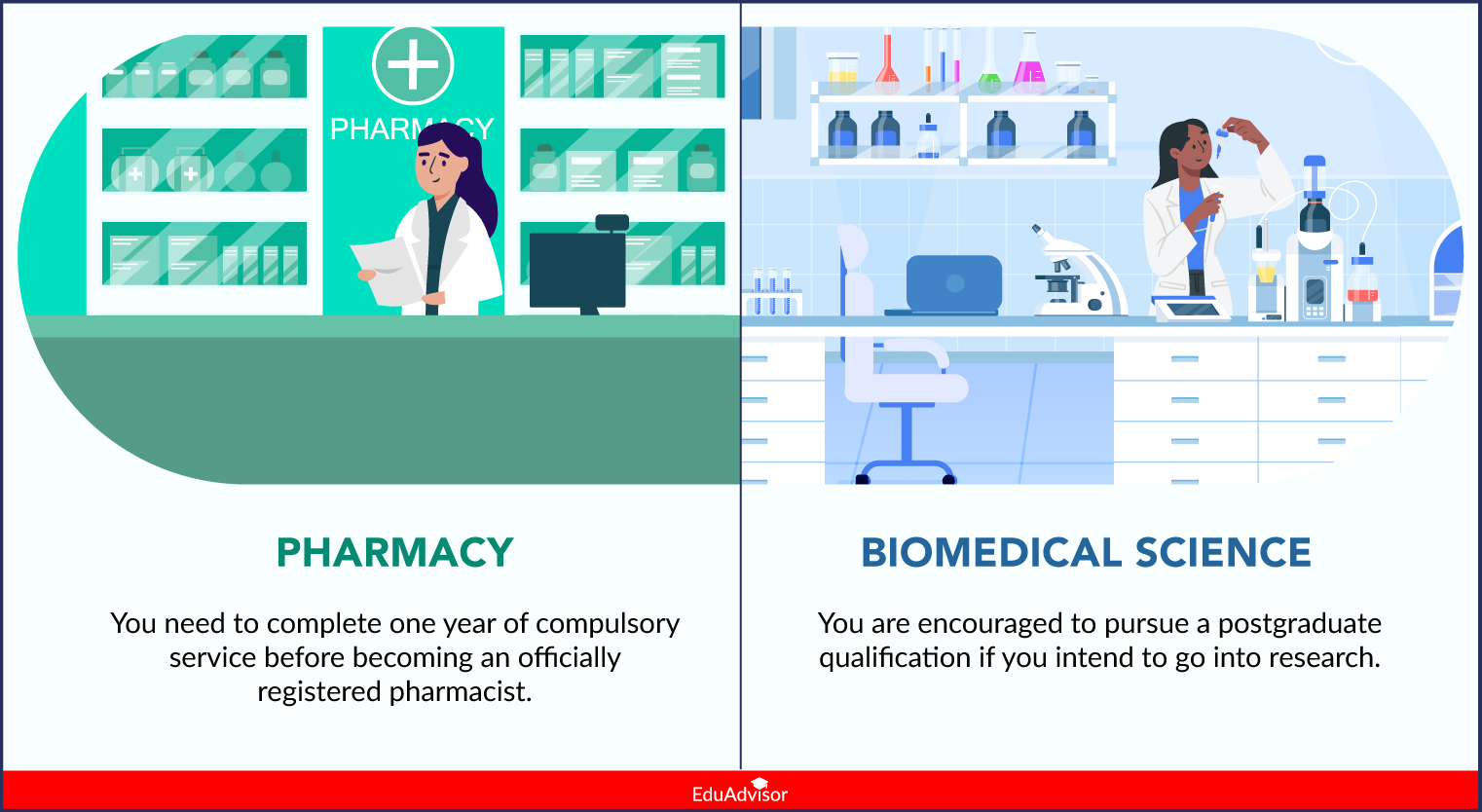
To ensure high standards of professional and personal conduct, the pharmacy profession is governed by the Pharmacy Board Malaysia. This means a slew of requirements that you must meet before you can become a practising pharmacist.
As a start, you must graduate with a recognised pharmacy degree. Following that, you also need to complete one year of compulsory service at approved training premises before you can finally become a Fully Registered Pharmacist (FRP). This means that it’ll take you around 6 years from SPM to become a full-fledged pharmacist.
On the other hand, biomedical science graduates do not need to obtain any extra certification after graduation. However, if you intend to go into research, it often calls for postgraduate qualifications in the discipline you are interested in.
PRO TIP
For a clear pathway on how you can become a pharmacist, check out our comprehensive pharmacy course guide.
#4. Pharmacists work in pharmacies while biomedical scientists work in laboratories
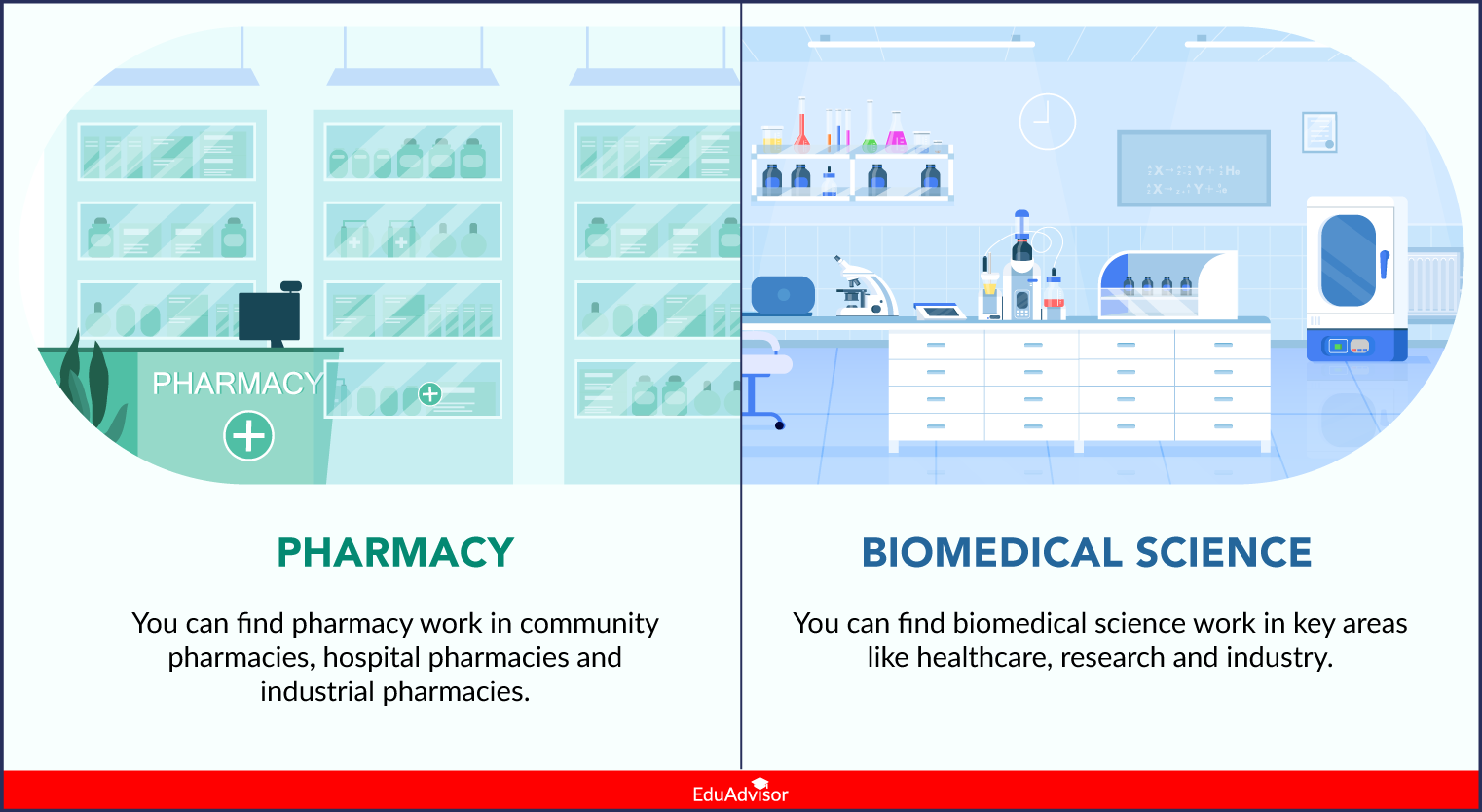
Most pharmacy graduates pursue careers as pharmacists. You will have the options to choose between community, hospital, industrial and other types of pharmacy work.
If you choose to work in community pharmacies, your task will include screening prescriptions, dispensing medication and promoting public health. Working in the hospital field will give you access to specialisations like cytotoxic pharmacy (drugs that can lead to cell damage or death) and other types of medication that can typically be accessed in the hospital setting.
Industrial pharmacy may not lead to you working directly with patients but the variety of work may be more satisfactory. You can work in drug development, regulatory affairs or even pharmaceutical sales and manufacturing.
As for biomedical science graduates, your job scope will mainly be focused on research and lab work. You can find work in areas like healthcare (key tasks involve analysing blood samples and determining organ and blood compatibility), research (involves a wide variety of research fields like medical, veterinary and agriculture) and industry (researching and developing new drugs and treatments).

While it overlaps, pharmacy and biomedical science are still two distinct fields in the medical sector. Which you choose depends on what you’re looking for and your preferences.




